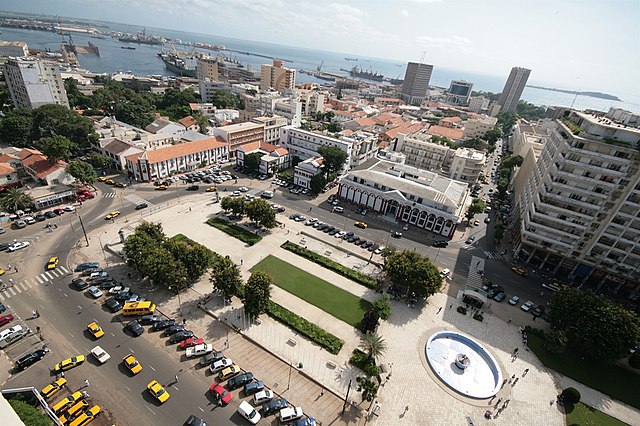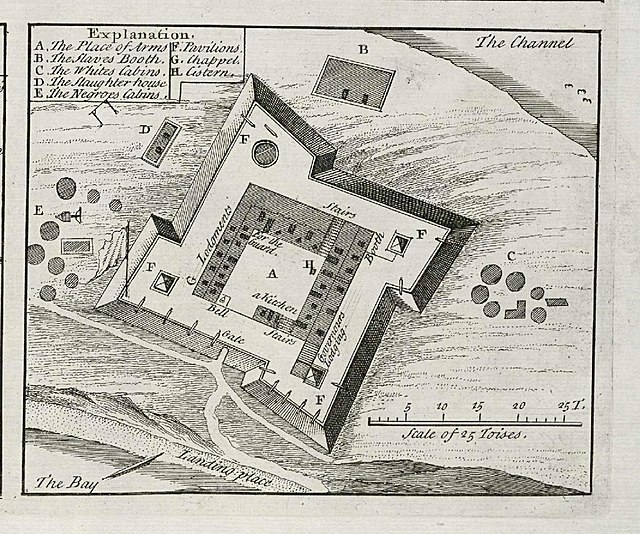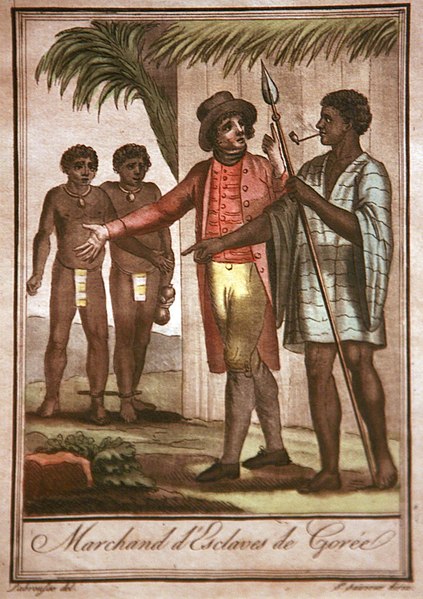The economy of Senegal is driven by mining, construction, tourism, fishing and agriculture, which are the main sources of employment in rural areas, despite abundant natural resources in iron, zircon, gas, gold, phosphates, and numerous oil discoveries recently. Senegal's economy gains most of its foreign exchange from fish, phosphates, groundnuts, tourism, and services. As one of the dominant parts of the economy, the agricultural sector of Senegal is highly vulnerable to environmental conditions, such as variations in rainfall and climate change, and changes in world commodity prices.
Dakar, Senegal's place de l'Indépendance: a center of government, banking and trade. In the background is the commercial port and the tourist area, Gorée island.
A jet of the national airline, Air Senegal International.
A sugar processing plant of the Compagnie sucrière sénégalaise at Richard Toll.
The main street of the tourist resort town of Saly.
Senegal, officially the Republic of Senegal, is the westernmost country in West Africa, situated on the Atlantic Ocean coastline. Senegal is bordered by Mauritania to the north, Mali to the east, Guinea to the southeast and Guinea-Bissau to the southwest. Senegal nearly surrounds The Gambia, a country occupying a narrow sliver of land along the banks of the Gambia River, which separates Senegal's southern region of Casamance from the rest of the country. Senegal also shares a maritime border with Cape Verde. Senegal's economic and political capital is Dakar.
The Portuguese Empire was the first European power to colonize Senegal, beginning with the arrival of Dinis Dias in 1444 at Gorée Island and ending in 1888, when the Portuguese gave Ziguinchor to the French.
French slave traders in Gorée, 18th century
Macky Sall, President of Senegal (2012–2024)
Abdoulaye Wade, President of Senegal (2000–2012)








